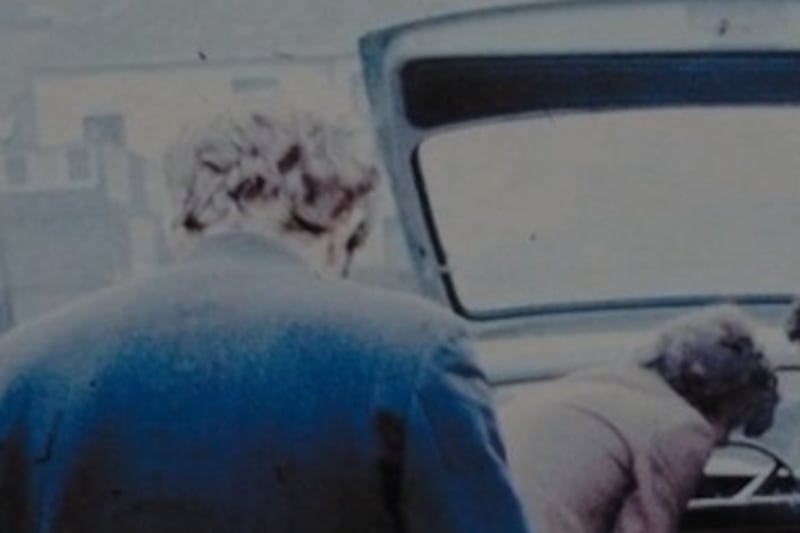A Stormont department was urged not to "embarrass" schools by asking them to host visits by new education minister Martin McGuinness amid a series of protests at his appointment, archives reveal.
The late former IRA commander's installation as Sinn Féin minister for education in December 1999 prompted around 50 demonstrations in schools in mainly unionist areas, with some pupils walking out of classes to form pickets.
Newly released files from the Public Record Office of Northern Ireland include Department of Education documents and correspondence related to the classroom boycotts.
One is a confidential briefing note sent to a senior department member by another prominent education official.
The document references one particular walkout at Kilkeel High School in Co Down and goes on to offer analysis on the wider protest activity.
Read more
- Martin McGuinness: As education minister his public image was transformed
- Former US president Bill Clinton praises Martin McGuinness
- Brian Feeney: How McGuinness became the most popular politician in the north
"There is circumstantial evidence which suggests that the demonstrations by pupils are being orchestrated," the official wrote.
"Many of the protests have been preceded by pupils asking their peers to sign a petition objecting to the minister, the pupils who are acting as organisers are quoting the same mis-information to persuade their peers to join them in protest (all pupils will be forced to learn Irish, play Gaelic games, attend integrate schools...); the spokespersons leading the protests use the same form of words and cliches; there are flags, banners etc in readiness when the protest begins; others, over school leaving age, turn up to support the protest; local, anti-agreement, politicians are soon on the scene, as are representatives of the press."
He said the demonstrations, however fleeting, were "damaging the morale and relationships within the schools affected".
"They make it even more difficult to plan a programme of school visits for the minister," he added.
"I suspect that, for some time, many schools will be very reluctant to invite the minister to functions, fearing a reaction of the kind being witnessed at present."
He then relayed a conversation he had had with a representative of the Governing Bodies Association - an organisation that represents voluntary grammar schools.
"At last night's function at Parliament Buildings, a GBA representative said he hoped the department would not embarrass schools by asking them to host a visit by the minister.
"It would take time, he judged, to establish trust and openness."
Mr McGuinness wrote at the time that he was "disappointed at what happened at a number of schools but I have been greatly encouraged by the general level of support which I have received since my appointment".
"I can understand that people may feel concerned during this momentous period of change," he said.
"I am, however, totally committed to the fair and equal treatment of all the children here and will strive to ensure that they receive the best education possible."







